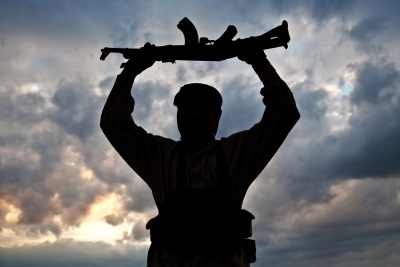A nation must think before it acts.
Over the next few weeks the Muslim Brotherhood is likely to feature at the center of Washington’s political debate. Congressman Mario Diaz-Balart and Senator Ted Cruz have recently introduced the Muslim Brotherhood Terrorist Designation Act and various indications point to the Trump administration’s inclination to take similar measures against the world’s oldest and largest Islamist group.
These moves have immediately sparked a heated debate. Their most visceral criticssee the Brothers as the godfathers of modern terrorism and devious wolves-in-sheep’s-clothing engaged in the stealth subversions of the societies in which they operate. Their staunchest defenders see them simply as religiously conservative forces who have eschewed bullets for ballots—a source for stability in the Middle East, for integration of Muslims in the West, and a bulwark against jihadist wrath.
The real nature of the movement is obviously much more complex than these caricatured views, even though both, despite their symmetrical difference, do capture parts of its soul. It is therefore unsurprising that the United States, like all Western countries, has never adopted a consistent assessment, let alone policy, toward the Brotherhood; over time, Washington has swung erratically from embrace to rejection and back.
One of the most challenging issues is determining what exactly the Brotherhood is. The Brotherhood was founded in 1928 in Egypt but its ideas soon spread worldwide. Even though few publicly acknowledge themselves as Brothers, individuals and organizations with historical, ideological, operational, and financial links to the Brotherhood in Egypt and among themselves are active not just in virtually every Muslim-majority country, but also in the West, in Latin America, and in Sub-Saharan Africa. In each country the movement has taken different forms, adapting to local political conditions. In Middle Eastern countries where it is tolerated it exists as a political party; in those where it is persecuted it operates as an underground movement devoted to dawa (proselytizing) and, in some cases, to violence. In Palestine it took a peculiar turn and became Hamas, which, as the Hamas Charter states, is the Palestinian branch of the Brotherhood (and has been designated as a terrorist organization by the U.S. government since 1997). In the West it took locally familiar forms, such as civil rights groups and religious and lobbying organizations.




